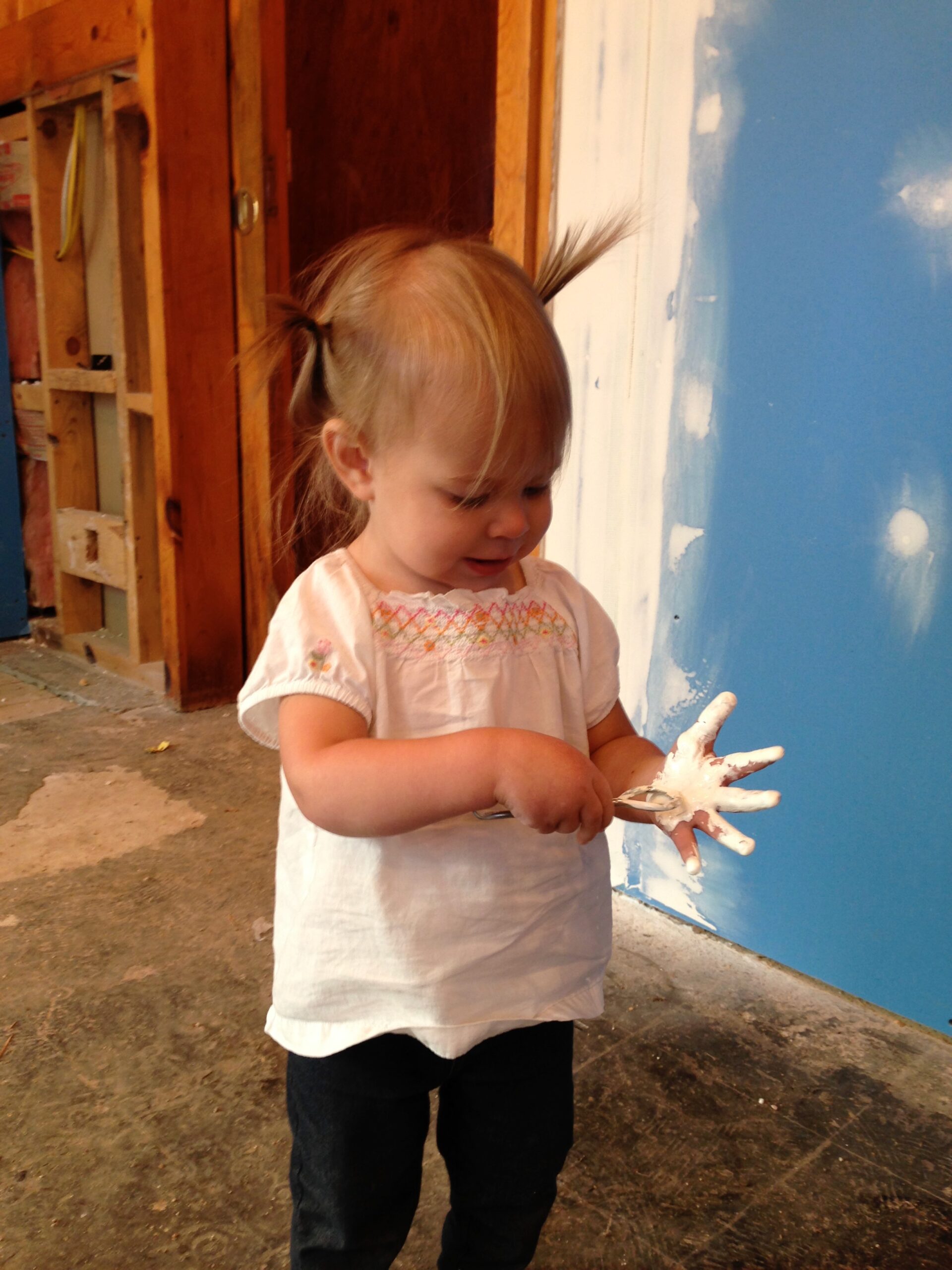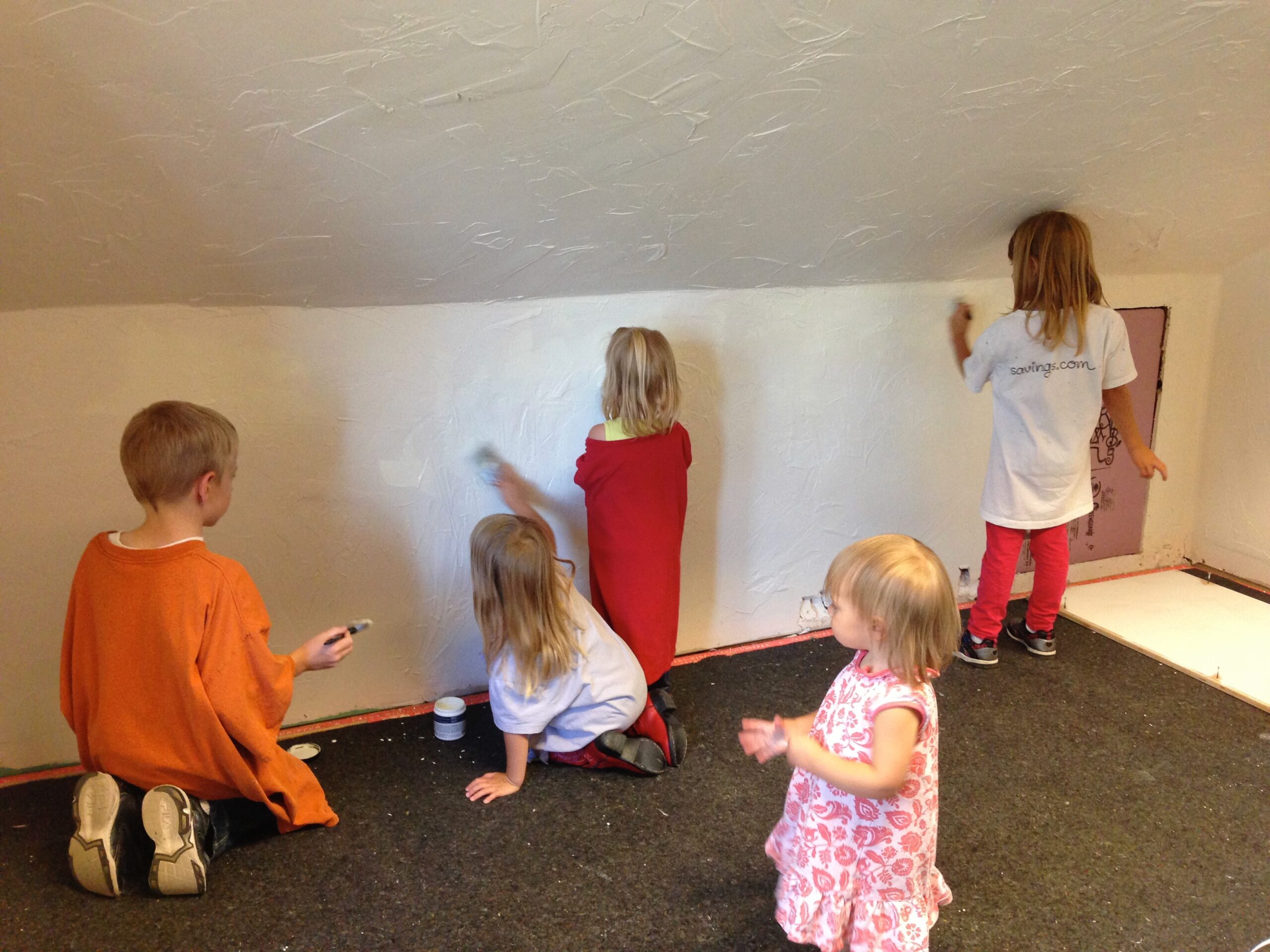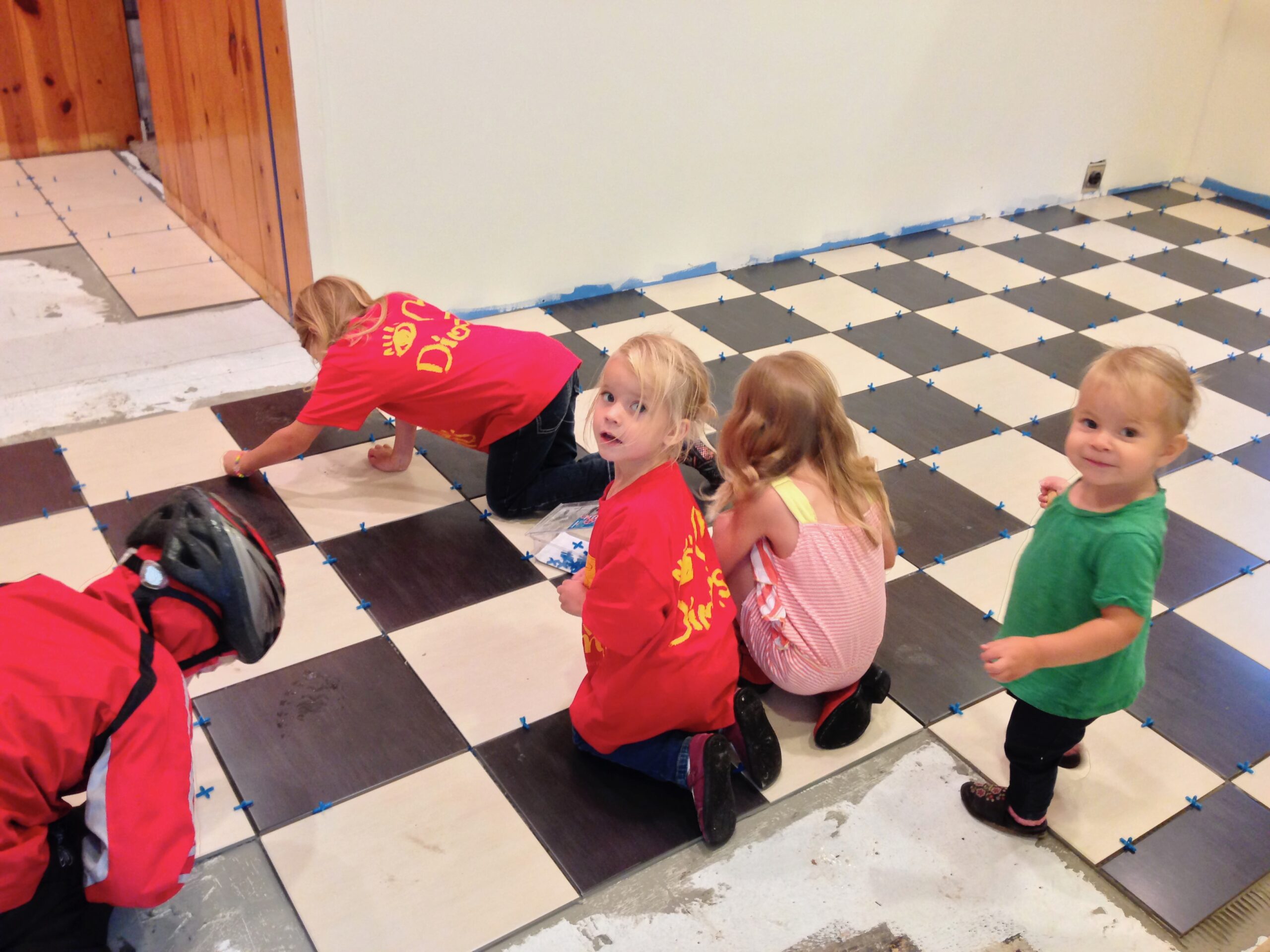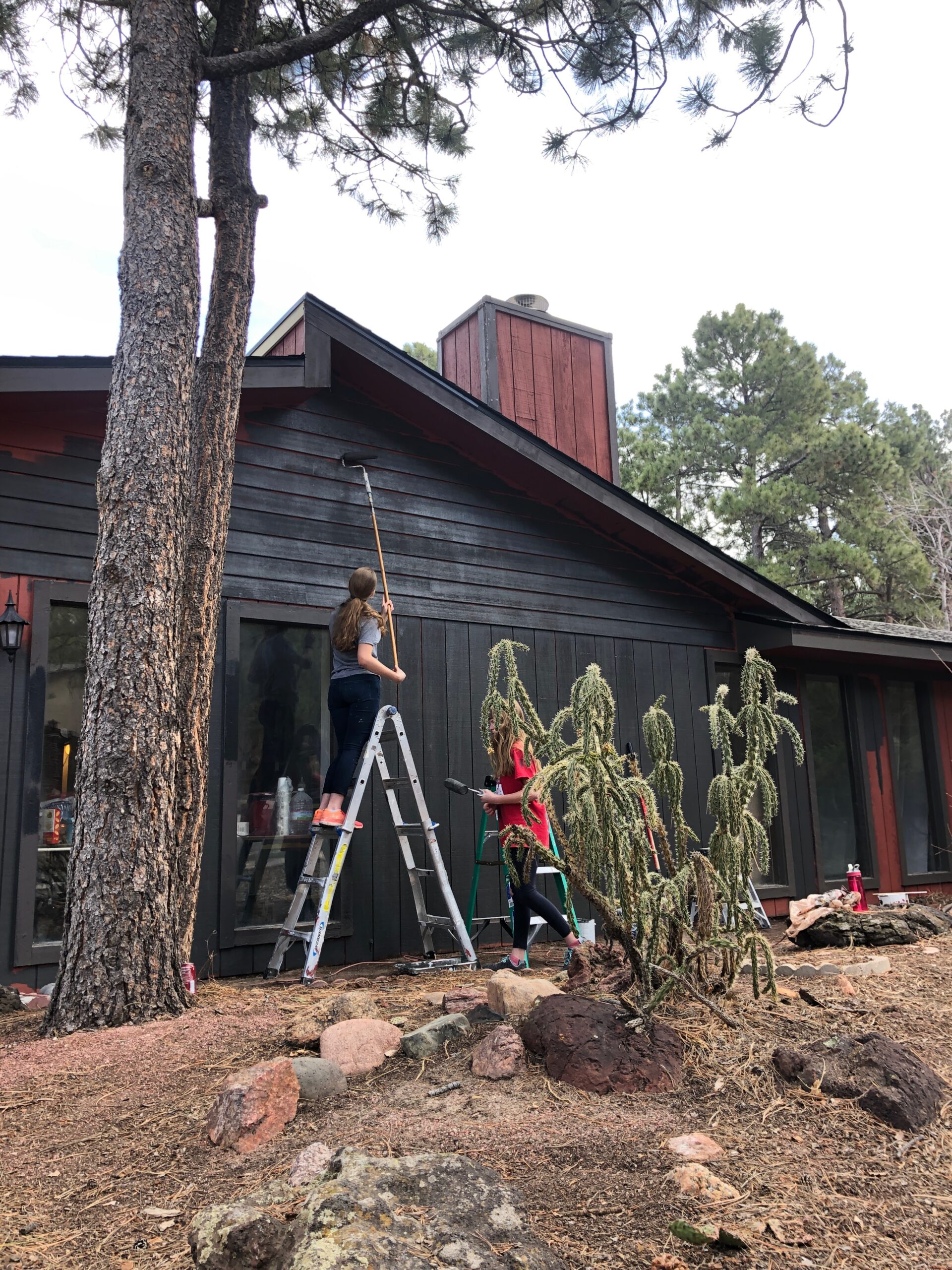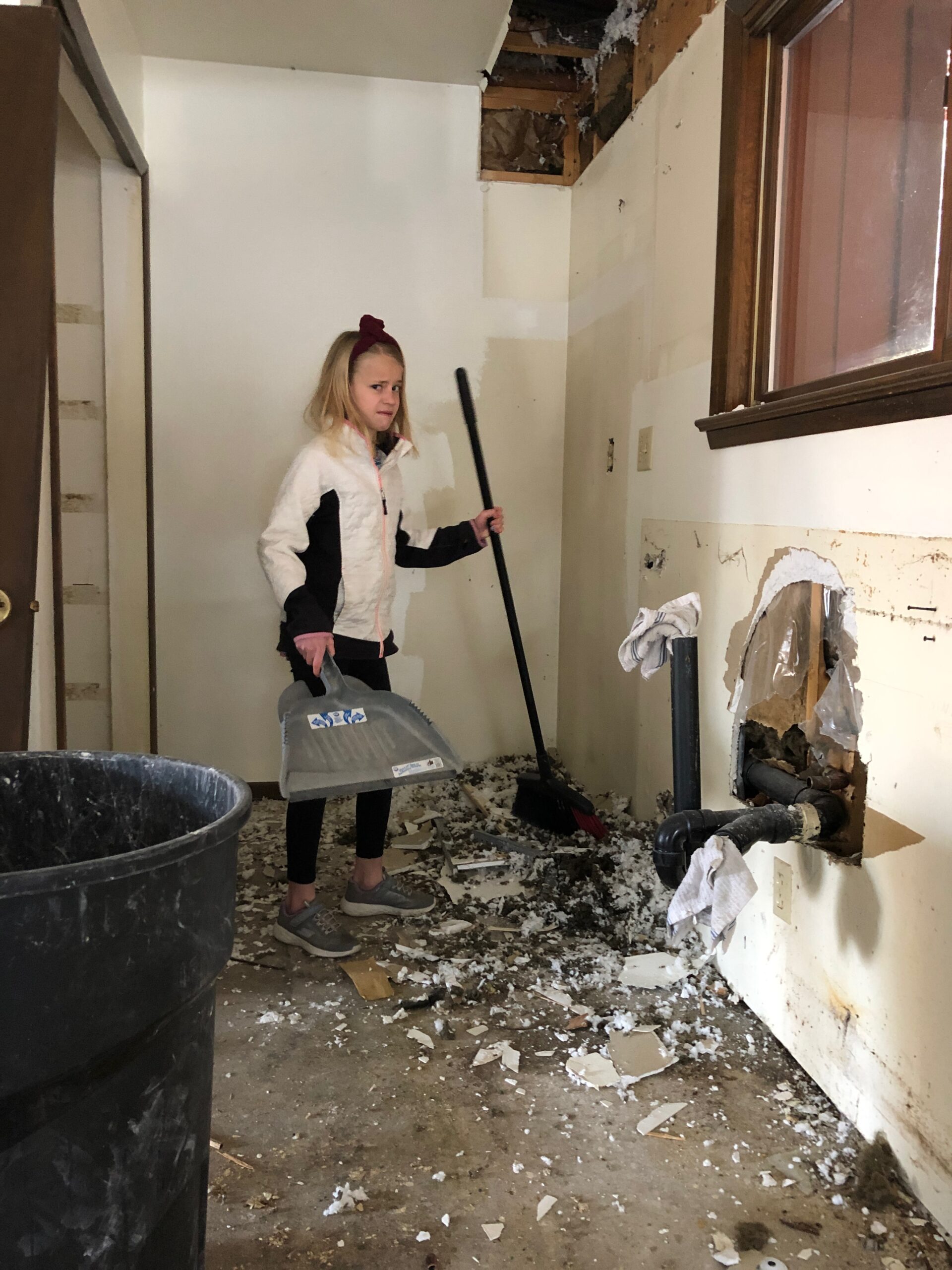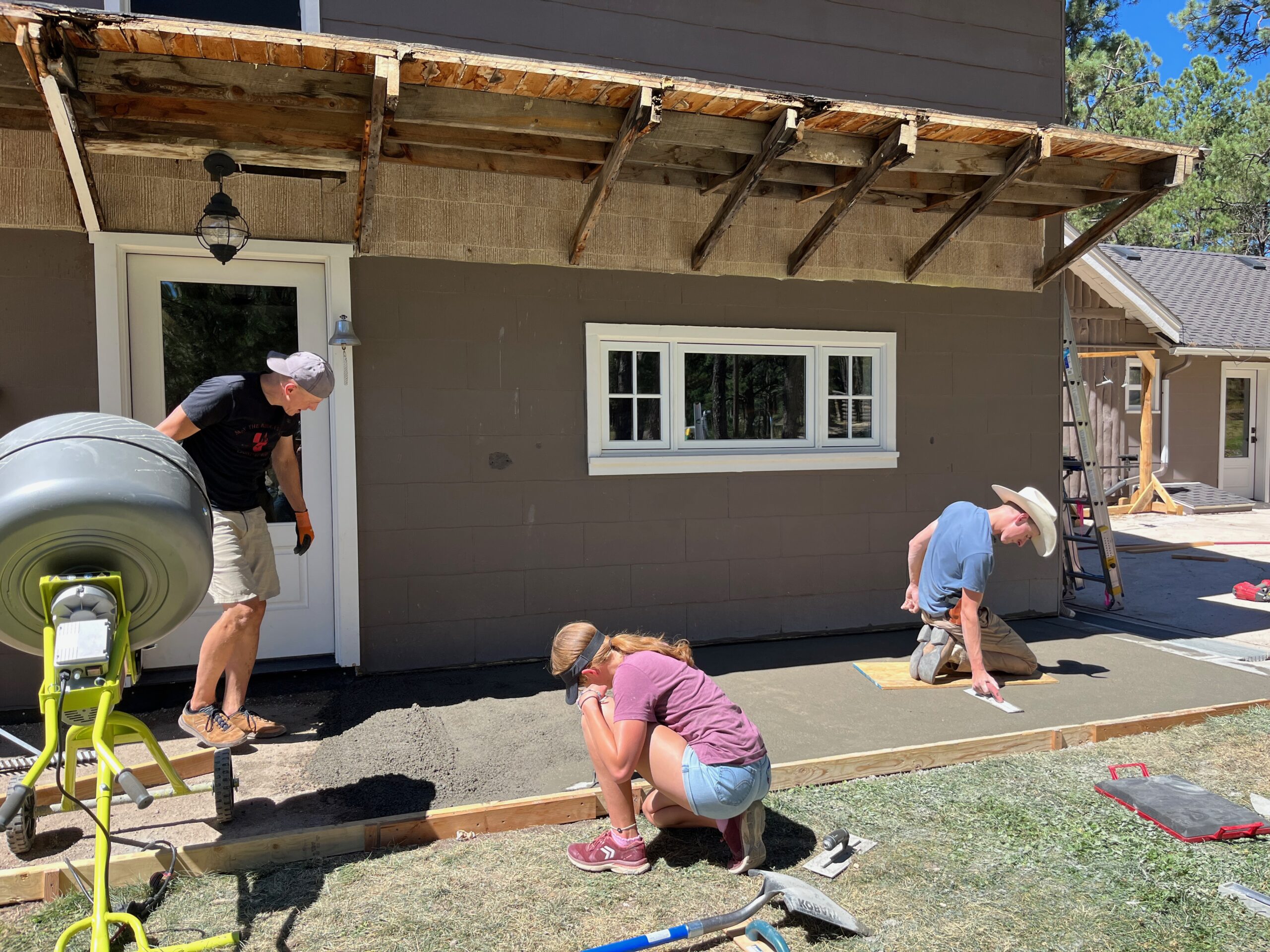
When we purchased our 1928 farmhouse in 2013, we didn’t really want a fixer-upper, but it was what we could afford at the time so we jumped in headfirst despite its need for a complete gut job.
That house gave us experience with almost every type of renovation imaginable, and along the way we realized we really love both the creative planning and manual labor of transforming a house into a beautiful, well-thought-out home.
First we shape our buildings; then afterwards, our buildings shape us.
Winston Churchill
Now we’ve finished that first farmhouse, renovated six others from top to bottom, and completed full kitchen, bath, and custom carpentry jobs for many satisfied clients. You can see samples of our work here.

Our five children were ages 8 down to 1.5 when we first started renovating, and have helped us every step of the way (more usefully now that they are all teenagers and young adults). It’s been an integral part of our homeschooling life, and you’ll likely meet at least a couple of our kids as they working alongside us during your project.
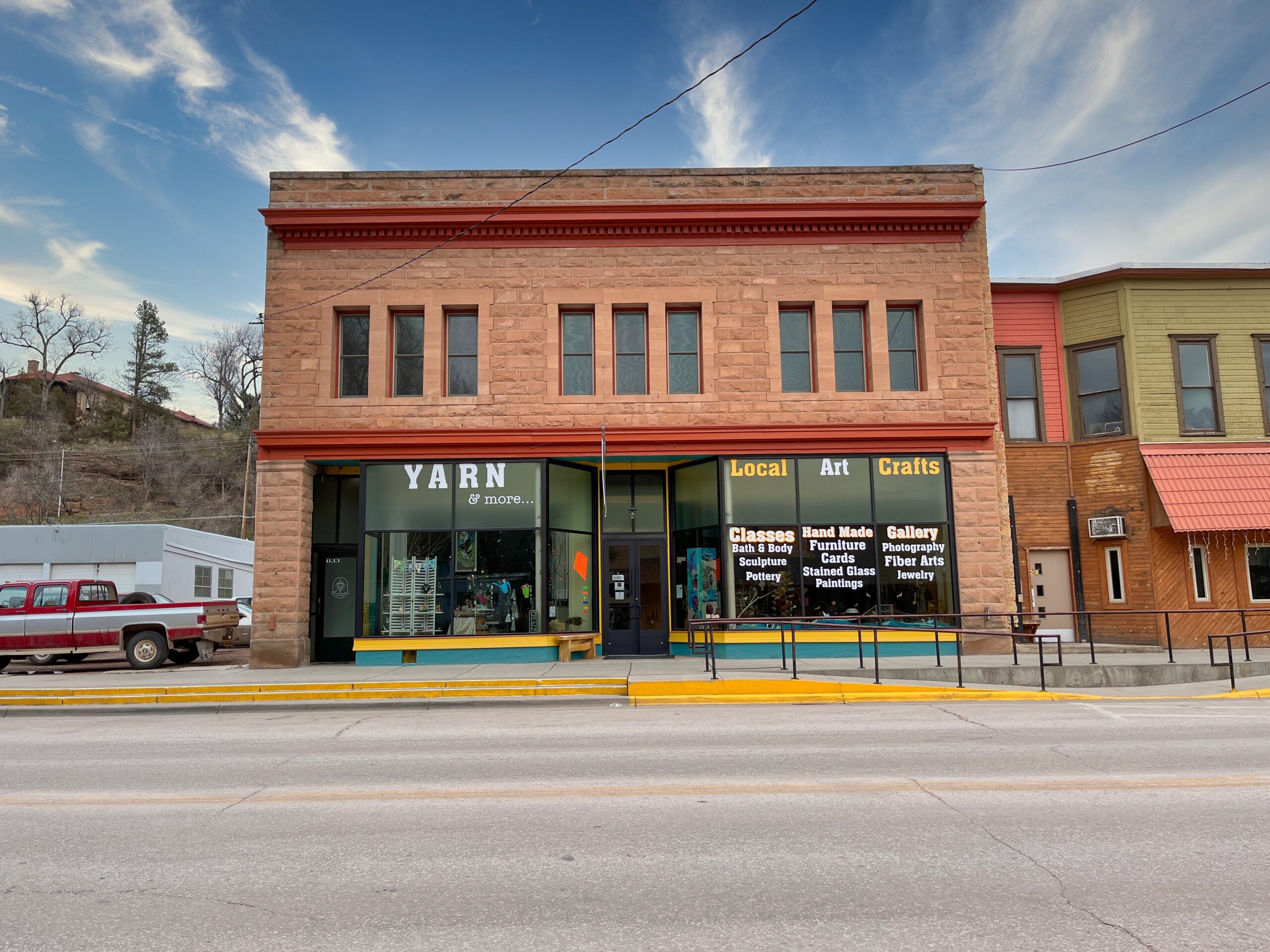

In addition to Circa Design and Remodeling, we also run The Evanston Suites in Hot Springs. We’d love to have you stay with us at The Evanston if you’re visiting Hot Springs. (It’s also a great place to recommend to family and friends who are visiting you if you’re a local!)
